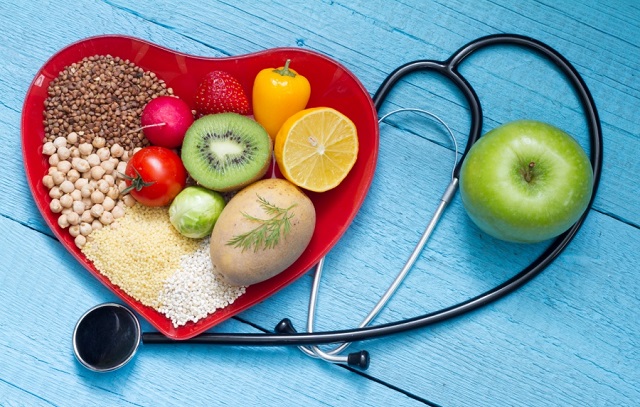
ANALYSIS | AGENCIES | Meaningful, small changes can have a big impact on your overall health and well-being. In 2024, commit to taking small steps to change your daily routines and habits to benefit your health.
1. Eat a healthy diet
What a healthy diet looks like may differ from person to person, depending on your culture, where you live and what food is locally available. Yet, the principles are the same − making informed choices can help you improve the way you eat. Cutting down on foods high in salt, free sugars, saturated fats and trans-fatty acids may sound overwhelming at first, but easy steps add up − such as swapping a lunchtime soda for water. Eat at least five portions of a variety of fruits and vegetables every day. Think about a balanced and diversified diet, and keep fruits, vegetables, whole grains, legumes and nuts in mind as you plan your daily meals.
2. Be active
Being active every day can be challenging, but did you know that every move counts? Adding a walk after a meal, sweeping floors or taking the stairs can all help your cardiovascular health. Aim for at least 150 minutes of moderate activity per week if you are an adult. For additional health benefits, adults should increase their moderate-intensity physical activity to 300 minutes per week or the equivalent. If you have children or teenagers, be active together and help them reach their 60 minutes of exercise per day. There can be many environmental or mental barriers to physical activity, but always remember physical activity has significant health benefits for hearts, bodies and minds.
3. Avoid harmful use of alcohol
Did you know that alcohol consumption is a contributor to more than 200 diseases, injuries, and other health conditions? Alcohol consumption increases your risk of injury, as well as longer-term effects like liver damage, cancer, heart disease and mental illness. Any level of alcohol consumption carries risk. If you drink alcohol, you may wish to discuss your alcohol consumption with a health-care professional.
4. Don’t use tobacco or vape
The benefits of quitting tobacco begin as quickly as 20 minutes after the last cigarette. Any tobacco use and exposure to tobacco smoke is harmful. Quitting tobacco reduces your risk of heart disease, cancer, chronic obstructive pulmonary disease (COPD) and other diseases.
Quitting vaping can also be part of the step towards a healthier you. E-cigarettes are harmful to your health and have long-term consequences, especially for young people, because users are exposed to nicotine and other harmful chemicals. Commit to quit.
5. Look out for your sexual health
Sexual health is essential for a healthy life. Sex is much more than just physical connection − it’s about respect, pleasure and safety. Sexual activities involving other partners require explicit consent and should be free from coercion, discrimination and violence. It’s also important to be safe during sex! Using condoms during sexual activity can help prevent sexually transmitted infections (STIs), unplanned pregnancies and HIV.
6. Connect in person to support your mental health
Loneliness is a serious health risk. A large body of research shows that social isolation and loneliness have a serious impact on physical and mental health, quality of life and longevity. Face-to-face or digital contact with friends or family can help you form meaningful social connections.
It’s also important to be kind to yourself and practise good mental health habits, to help manage any mental health conditions or stressful situations in your daily life.
7. Get vaccinated
Make sure you and your family are up-to-date with routine vaccinations. Vaccines reduce the risks of getting a disease by working with your body’s natural defences to build protection. If you have children who missed out on essential vaccines during the COVID-19 pandemic, check with your health provider to help them catch up and protect their health. We now have vaccines to prevent more than 20 life-threatening diseases, helping people of all ages live longer, healthier lives.
8. Take antimicrobials the right way
Bacteria, viruses, fungi and parasites have changed over time and some no longer respond to medicines. Antimicrobial resistance makes infections harder or sometimes impossible to treat, increasing the risk of diseases spreading, severe illness and death. To do your part in combating antimicrobial resistance, take antibiotics and other antimicrobials only if prescribed by your health provider, complete your treatment days and don’t share leftover antibiotics with others. Don’t ask for antibiotics to treat common colds and flu − antibiotics won’t work against viral infections.
9. Wash your hands
Clean hands help stop the spread of infections. Make sure you wash your hands the right way using soap and water or an alcohol-based rub.
10. Get regular check-ups
See your health provider for regular, yearly check-ups. These visits can help you monitor your blood pressure to control and prevent hypertension − the number one silent killer in the world. Many people don’t know they have hypertension and without proper treatment, uncontrolled hypertension can lead to severe health complications later in life.
Regular check-ups with your health provider will also help you keep track of your health status if you’re at risk for hepatitis, HIV, tuberculosis or STIs.
Essential tests, such as those measuring your cardiovascular health or sugar levels, can help with diagnosis and management of noncommunicable diseases like heart disease or diabetes early on. For women and men, health screenings like pap smears or prostate exams, respectively, can help detect cancer. Check with your health provider to find out which tests or screenings you need.
 The Independent Uganda: You get the Truth we Pay the Price
The Independent Uganda: You get the Truth we Pay the Price


